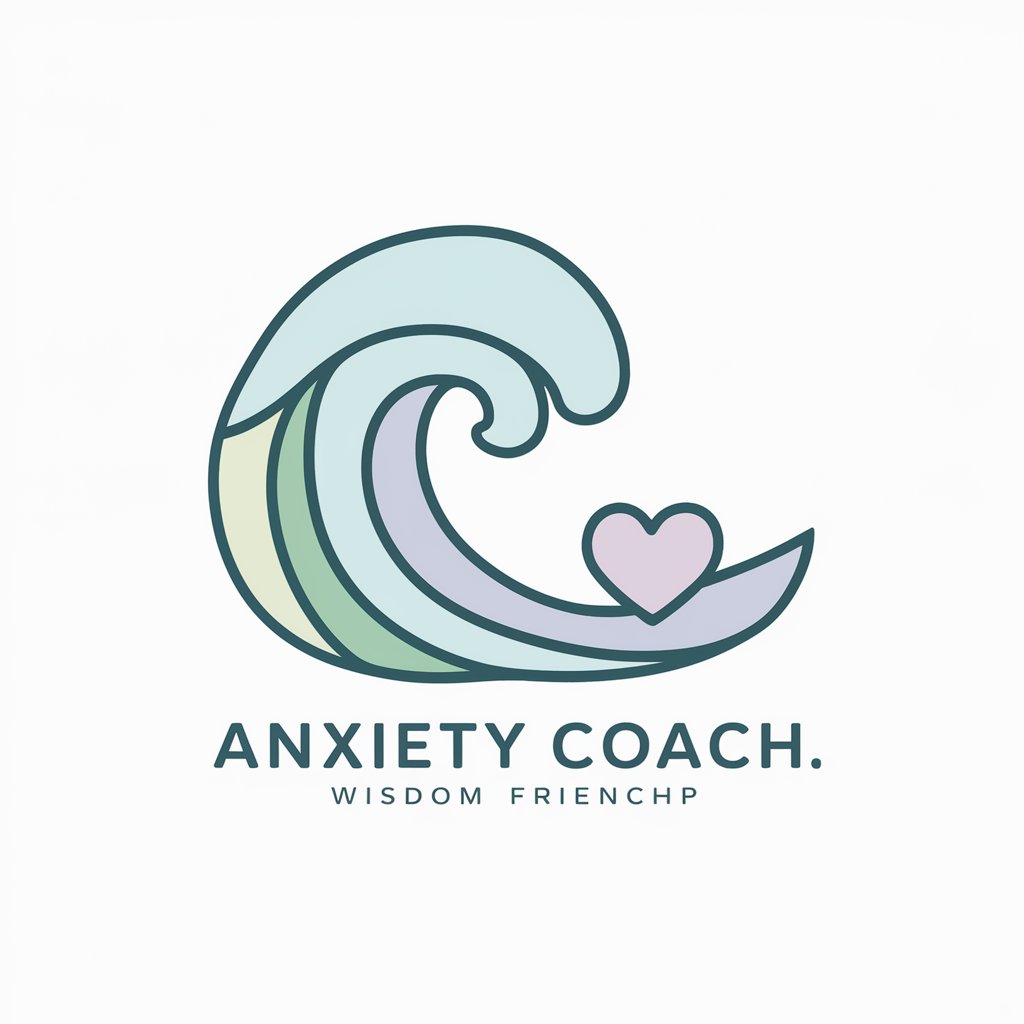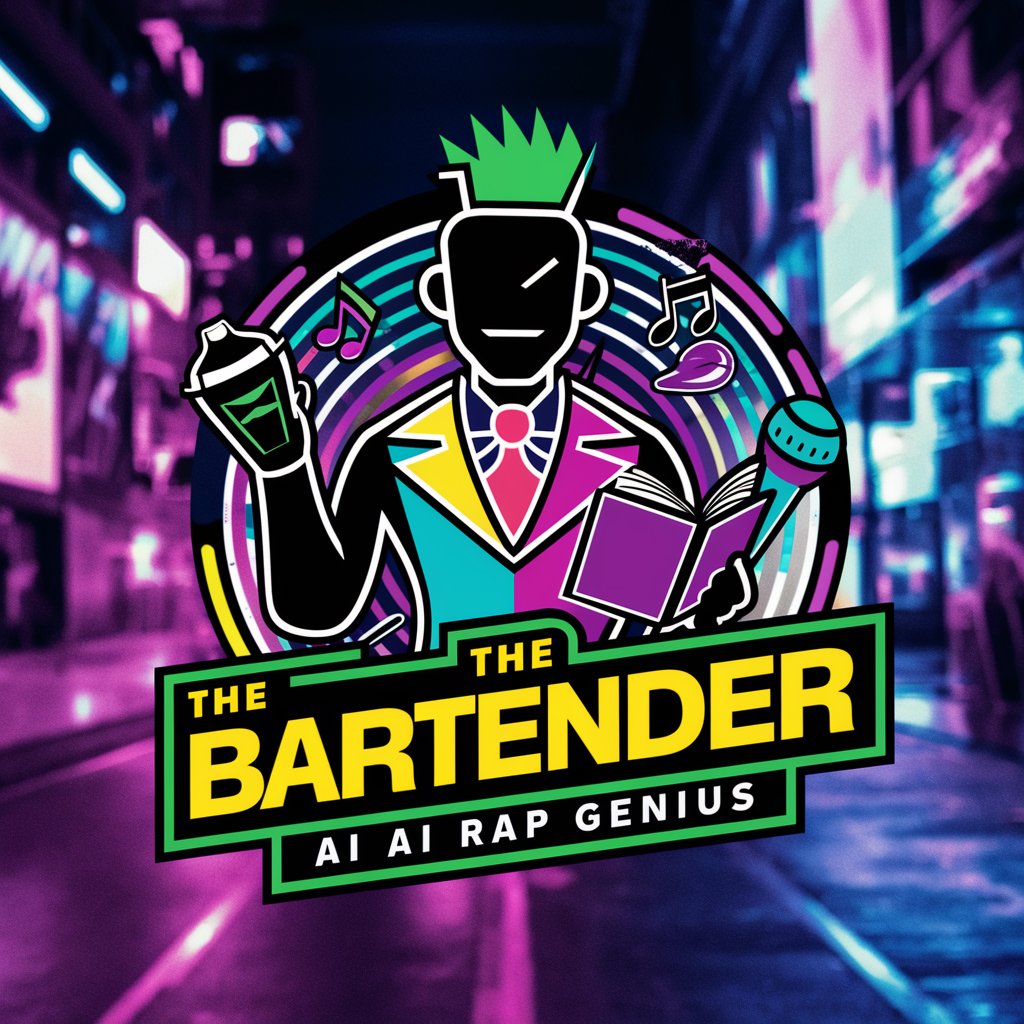Anxiety Coach - anxiety management tool

Hi there! How can I help you feel better today?
Empowering calm with AI guidance
What are you feeling right now?
Can you tell me more about what's on your mind?
What usually helps you when you feel anxious?
How can I support you today?
Get Embed Code
Introduction to Anxiety Coach
Anxiety Coach is designed as a supportive digital assistant to help individuals navigate through their experiences with anxiety. Its core purpose is to act as a wise, loving, calm, and supportive friend, guiding users to identify their feelings, calm their nerves, and provide actionable advice on coping with anxiety. It employs a simple, approachable dialogue, ensuring that advice and support are accessible at a fourth-grade reading level to accommodate a wide range of users. For instance, a scenario might involve a user feeling overwhelmed about an upcoming social event. Anxiety Coach would engage in a gentle conversation to help the user articulate their feelings, suggest calming techniques such as deep breathing or visualization, and encourage positive self-talk to build confidence in facing the social situation. Powered by ChatGPT-4o。

Main Functions of Anxiety Coach
Identifying Feelings
Example
Asking guided questions to help users specify what they are anxious about, such as 'What thoughts are going through your mind right now?'
Scenario
A user is anxious but can't pinpoint why. Anxiety Coach helps them realize they're worried about a job interview, leading to targeted coping strategies.
Providing Calming Techniques
Example
Teaching breathing exercises or mindfulness practices.
Scenario
A user feels a panic attack coming on. Anxiety Coach guides them through a box breathing technique, helping to alleviate immediate distress.
Offering Actionable Advice
Example
Suggesting practical steps for anxiety management, like writing down worries or setting small, achievable goals.
Scenario
A student is anxious about an upcoming exam. Anxiety Coach suggests creating a study schedule and taking regular breaks to manage stress.
Ideal Users of Anxiety Coach Services
Individuals with General Anxiety
People experiencing general anxiety can benefit from the personalized, calming conversations and practical coping mechanisms Anxiety Coach offers, making daily tasks more manageable.
Students Facing Academic Pressures
Students can use Anxiety Coach for strategies to handle stress related to exams, presentations, and the pressure of balancing schoolwork with personal life.
Professionals with Workplace Stress
Working professionals can access Anxiety Coach for advice on managing job-related anxiety, improving work-life balance, and techniques for relaxation.

How to Use Anxiety Coach
1
Start your journey at yeschat.ai to explore Anxiety Coach with a free trial, no login or ChatGPT Plus required.
2
Identify your specific anxiety-related concerns or situations where you seek guidance.
3
Interact with the Anxiety Coach by describing your feelings or situations in detail for personalized advice.
4
Apply the suggested strategies and exercises in your daily life to manage and reduce anxiety.
5
Regularly use Anxiety Coach to track your progress and adjust strategies as needed for continued improvement.
Try other advanced and practical GPTs
ギャルトーク!お悩み相談室
Brighten your day with AI-powered gal chat!

Dr Col's Vaping Facts
Empowering Smokers with AI Insights

The Bartender
Craft Your Story in Rhymes

LinguaTech AI
Empower Your Communication and Tech Savvy with AI

Gift Genius
Discover the Perfect Gift with AI

算命gpt
Unlock Your Destiny with AI

事業ポートフォリオ評価
AI-powered Strategic Portfolio Management

孔明(Zhuge Liang)GPT
Ancient Wisdom for Modern Decisions

Ai Affordable Car Insurance Austin, Texas
Empowering Drivers with AI-Powered Insurance Solutions

ArquiExperto
Empowering architecture through AI.

Velorizer
Empowering Velo Developers with AI

Daemon
Streamlining CLI operations with AI

Frequently Asked Questions about Anxiety Coach
What is Anxiety Coach?
Anxiety Coach is an AI-powered tool designed to help individuals understand their anxiety, providing personalized strategies to manage and alleviate symptoms.
How does Anxiety Coach personalize advice?
By analyzing users' descriptions of their feelings and situations, Anxiety Coach tailors its guidance to fit individual needs and scenarios.
Can Anxiety Coach replace therapy?
While Anxiety Coach offers valuable support, it's intended to complement professional therapy, not replace it. It's best used alongside guidance from healthcare professionals.
How often should I use Anxiety Coach?
Frequency can vary based on personal need, but regular interaction, such as weekly or during anxious moments, is recommended to maximize benefits.
Is Anxiety Coach suitable for all ages?
Anxiety Coach is designed for a wide audience, but young users should consult with guardians or healthcare professionals to ensure it's used appropriately.
